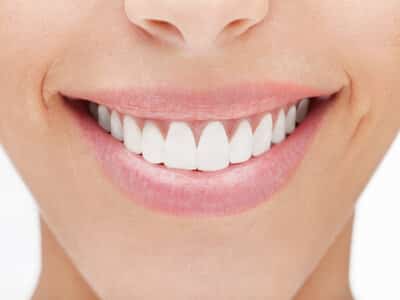
White Spots
The white spots that appear because of orthodontic treatment are called white spot lesions (WSLs. Typically patients with WSLs see them under brackets or in hard to reach places between teeth and close to the gums. Orthodontists are frequently asked about the possibility of white spots after braces, but what determines if WSLs will be present after treatment is your brushing habits, and they are avoidable.
Preventing WSLs is easy, you just have to keep your teeth clean and practice the best oral health routine you can. This involves brushing twice a day, flossing, and using fluoride. You could even upgrade to an electric toothbrush to better reach spaces blocked by your braces.
Professional Whitening Services
Even if you aren’t worried about braces causing WSLs, you might still be trying to explore whitening options. Many things can cause tooth discoloration, like diet, oral health care routines, and even the environment.
Fortunately, there are many solutions to discoloration. Dentists and orthodontists also offer professional cosmetic services to whiten teeth. The chemicals dental professionals use are stronger than a store-bought option but won’t hurt your gums and mouth. These treatments are temporary and last six to twelve months.
Safe ways to Whiten at Home
We understand that professional whitening isn’t for everyone, so here are some tips for keeping your smile white at home.
An important consideration is diet, many of the factors that cause staining are a result of food and drink. Some examples are coffee, soda, wine, and tomato sauces. But, there are some foods that help whiten your teeth without any chemicals or visits to the dentist. Adding strawberries, apples, celery, and carrots to your diet can help whiten your teeth naturally. These fruits and veggies have naturally occurring chemicals like malic acid in strawberries and saliva production agents in apples or celery that can help clean out your mouth and whiten teeth.
It is also quick and easy to buy an over-the-counter whitening kit at many retail stores. These kits are usually 10% hydrogen peroxide or whitening agent. There are also stringer prescription kits you can use at home, which have up to 35% whitening agent.